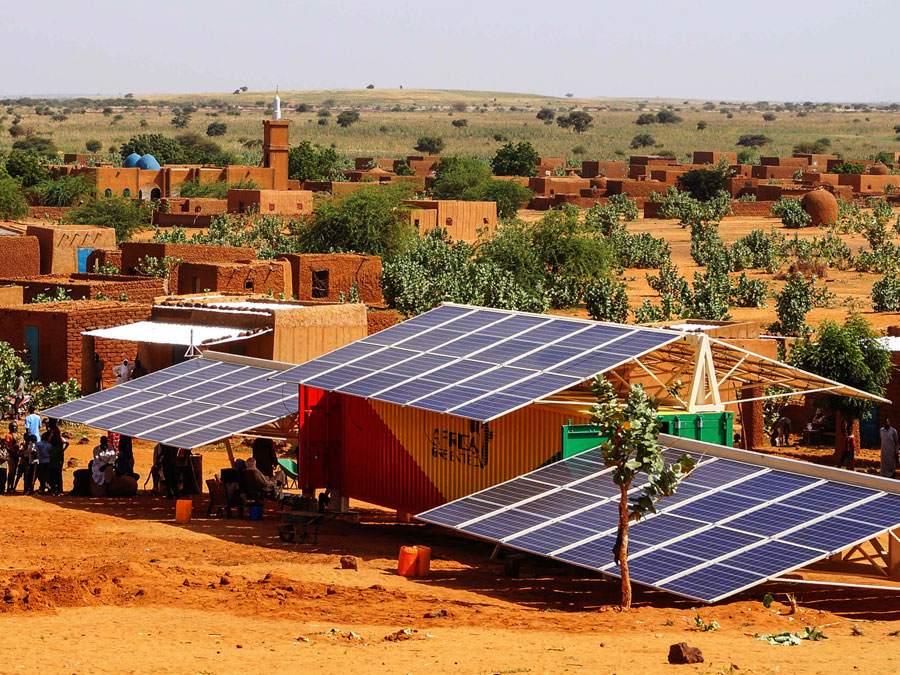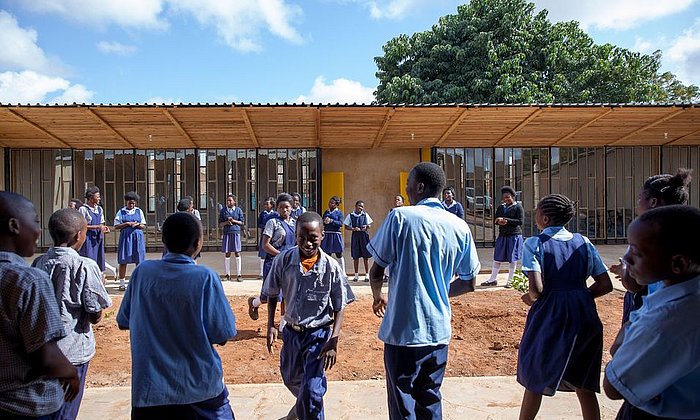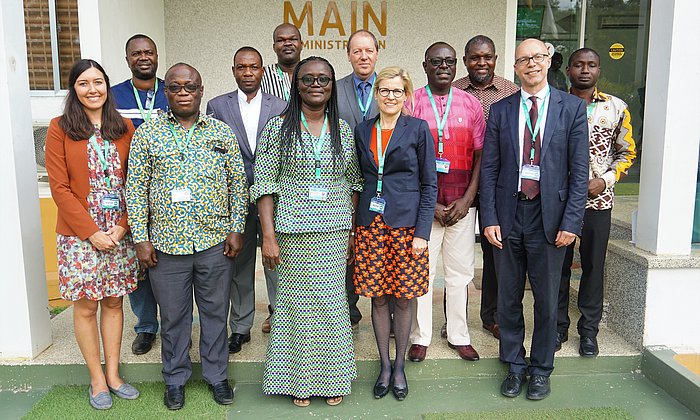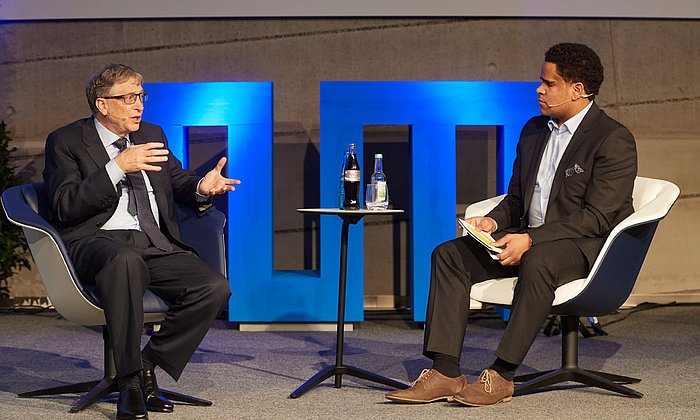An interview with Prof. Frank-Martin Belz, who is studying entrepreneurship in Africa
"Energy supply can trigger an economic boom in Africa"

Discussions on new business ventures mostly relate to Silicon Valley or European start-ups. At first glance, Mali would seem to be an unusual location for research into entrepreneurship.
But there are some interesting issues at play there. We want to find out whether – and which – entrepreneurial activities will appear there when one of the basic conditions for most business ventures is created, namely an energy supply.
Does that mean that you are studying rural areas?
Yes, we are going to study three villages where our project partners, the social business Africa GreenTec, is setting up small solar power stations and local power networks. Before they go into operation, we will go from house to house to assess the baseline situation: Are there already self-employed businesspeople and micro-enterprises active in these areas? What energy sources are available? And how willing are people to pay for electric power?
How much do researchers know about attitudes to entrepreneurship in the countries south of the Sahara?
We can look at figures from the Global Entrepreneurship Monitor, an annual worldwide assessment on the willingness to start a business. But in Africa, studies like these only survey the educated upper classes in major cities. They tell us nothing about the situation in rural areas in Sub-Saharan Africa. We're going directly to the people there. Many of them can't read or write, but are nevertheless starting businesses. For our long-term case studies, we will survey 10 to 20 people every six months in each case.
What forms of start-ups do you think are possible?
First, we're talking about micro-enterprises, for example an internet kiosk or a TV bar. Market people who have always sold food could now store and process it and hire one or two people to help them. We also want to assess the changes seen with existing micro-enterprises, for example small craft businesses that will be able to use new tools or machines to produce more or different things.
Are there country-specific factors that can determine whether companies succeed?
Compared to Europe, we see two important differences: First, there is the huge role of the family. Where we live, perhaps the parents play a certain role in a moral and financial sense. But in most African countries, there is a much greater social commitment to the entire extended family, which, for successful people, also entails financial commitments. We want to investigate how the new businesses deal with that, how the family situation changes, and which paths women take. One example would be if women from several families were to set up businesses together, because they would then have a valid reason for not withdrawing money from the company.
The second point is the importance of the informal economy. The majority of companies in rural areas of Mali are not registered and pay no taxes. How do entrepreneurial opportunities arise and develop in that kind of context? What happens when a micro-enterprise grows and starts to employ people? Does it then make sense to register the business formally?
Who do you expect to benefit from your results?
Based on this pilot project, we plan to work together with African universities and other European technical universities to conduct extensive surveys in several African countries. With the results, we hope to help policy makers and the business community in utilizing the enormous potential of this continent. 600 million people in Africa have no electricity, above all in rural areas. We are convinced that this situation is comparable to the development in rural areas of Germany around 100 years ago: The opportunities presented by the availability of energy, if used properly, can trigger an economic boom.
More Information:
In 2018 TUM launched an initiative for long-term, intensive cooperation in research, teaching and entrepreneurship with African partners. The first example is the agreement with the Kwame Nkrumah University of Science and Technology (KNUST) in Ghana. The initiative will build on the 140 projects and exchange programs in which TUM is already cooperating with institutions in 20 African countries.
Contact:
Prof. Dr. Frank-Martin Belz
Technical University of Munich (TUM)
Professorship of Corporate Sustainability
Tel.: +49 8161 71 3279
frank.belz@tum.de
Technical University of Munich
Corporate Communications Center
- Klaus Becker
- klaus.becker@tum.de
- presse@tum.de
- Teamwebsite



